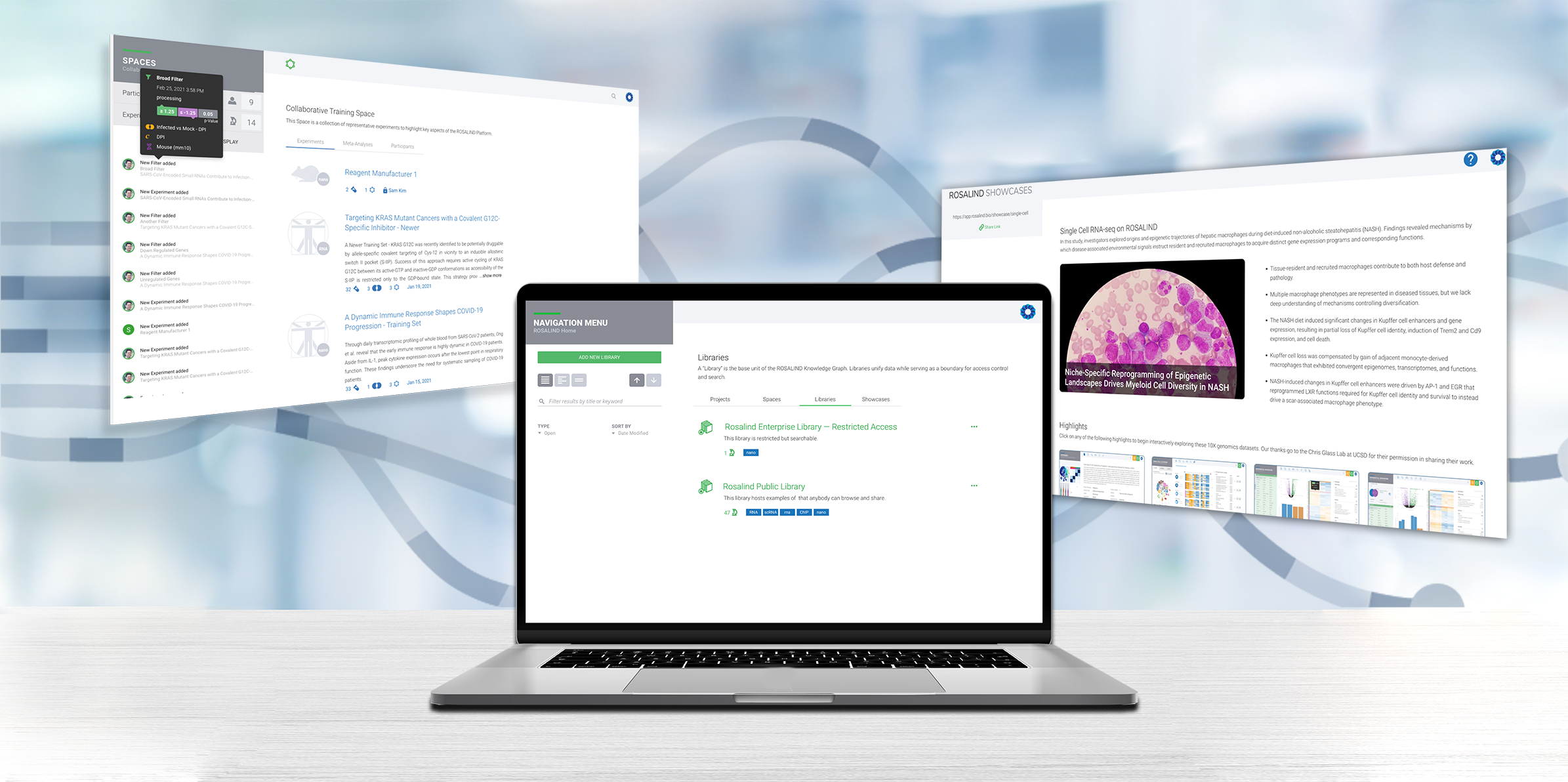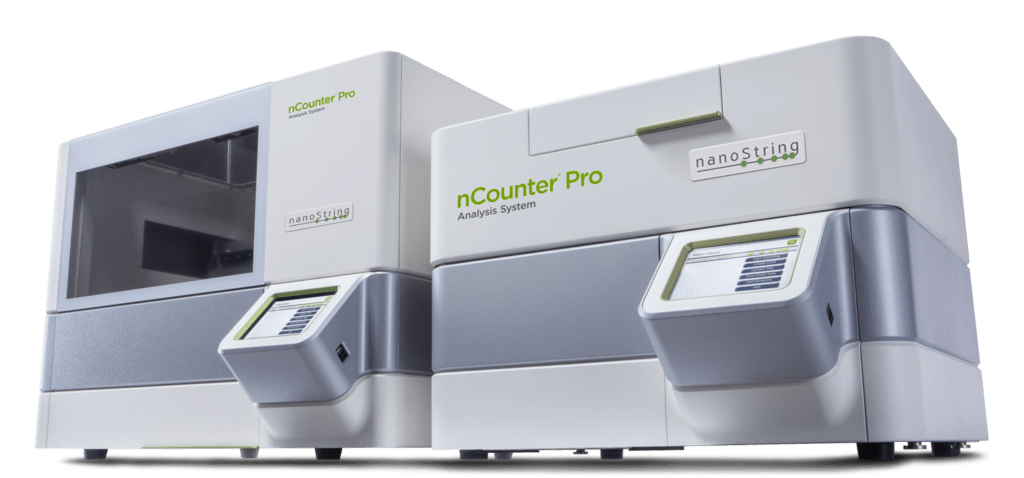As the world of biotechnology continues to evolve at a rapid pace, BioPharma institutions are confronted with the complex task of managing a deluge of multi-omic data sets. Knowledge Libraries are a revolutionary feature of the Rosalind platform designed to streamline data management and bolster collaborative research efforts. Knowledge Libraries are included with every Rosalind Enterprise Subscription.
Watch our Webinar on Knowledge Libraries:
The Challenge
Biopharmaceutical research generates a vast amount of data in research and clinical trials from many domains including genomics, transcriptomics, and proteomics. Managing this heterogeneous data, especially integrating it from disparate sources, presents a significant challenge. Beyond mere data management, safeguarding data security and privacy is a critical task, requiring vigilant prevention of unauthorized access while enforcing requiring compliance. Implementing robust data governance policies and strategies is essential to ensure data accessibility, integrity and accountability. Moreover, effective collaboration facilitated through well-organized data storage plays a crucial role in maximizing the potential of this rich data landscape for impactful scientific discoveries.
The Solution - Rosalind Knowledge Libraries
Rosalind Knowledge Libraries provide a secure, structured, and accessible environment for storing your scientific data. Located within the Rosalind Knowledge Graph, these libraries offer an efficient and organized approach to data storage that aligns with the FAIR (Findable, Accessible, Interoperable, and Reusable) principles, thereby fostering effective data management and stewardship.
For clinical trial data, which necessitates rigorous security and restricted access, we offer “Restricted Access Libraries”. These secure repositories safeguard your sensitive clinical trial data, ensuring access is only granted to authorized users within your institution.
On the other hand, internal research data that you wish to make widely accessible within your organization can be stored in our “Open Access Libraries”. These libraries are designed to maximize institutional knowledge sharing and scientific collaboration, giving all authorized users in your institution the ability to explore, analyze, and build upon your valuable research data. With Rosalind Knowledge Libraries, you can manage your diverse data types seamlessly, ensuring they are secure yet accessible, enhancing both collaboration and discovery within your research community.
Why Are Knowledge Libraries Important?
Rosalind Knowledge Libraries are powerful enablers of secure scientific collaboration, crucial for maximizing the potential of your research data. By creating a shared, accessible repository, these libraries allow researchers within your institution to seamlessly exchange knowledge, fueling innovation and accelerating discovery.
For research data, Rosalind Libraries ensure that findings from diverse studies can be easily accessed, compared, and incorporated into ongoing investigations. This broad availability of data promotes a collaborative, institution-wide scientific environment, enhancing the productivity and quality of your research efforts.
When it comes to handling clinical trial datasets, these libraries provide the same ease of access while maintaining stringent data security measures. Access to sensitive data is strictly regulated, ensuring that data integrity and compliance are consistently upheld, while still promoting the cooperative use of this vital information.
The strength of Rosalind Knowledge Libraries shines in the integration of secure data storage with advanced visualization capabilities. Far from just being a data repository, Rosalind provides an engaging platform for scientists to interact directly with their experiments, allowing them to visually explore and interpret complex multi-omic datasets through intuitive and engaging user experiences.
This combination of data storage and interactive data exploration facilitates a comprehensive, dynamic understanding of your research data. This powerful experience extends the value beyond simple data analysis to institutional knowledge management. It’s not just about storing data, but about bringing that data to life in a manner that enriches the research experience at every level.














